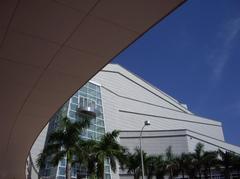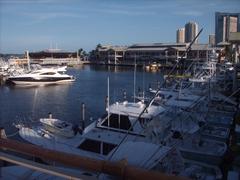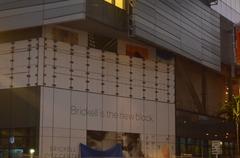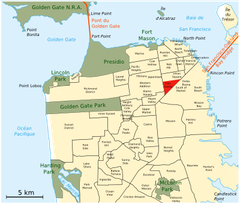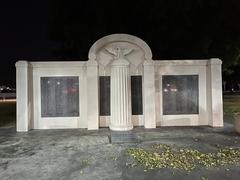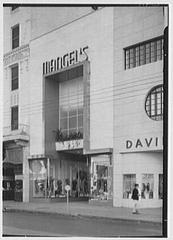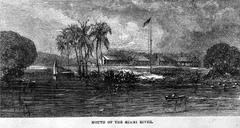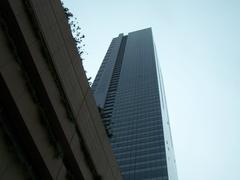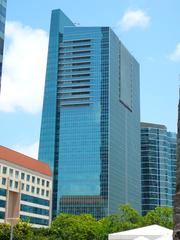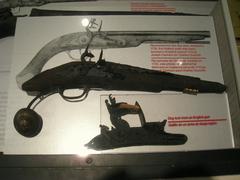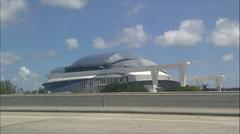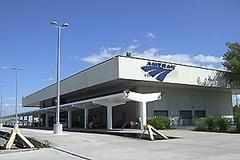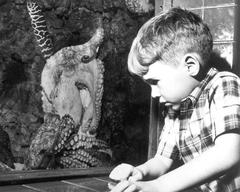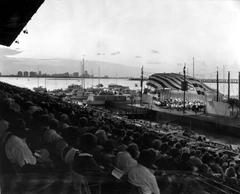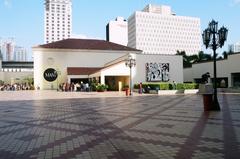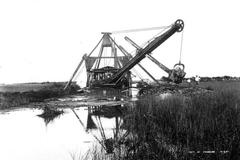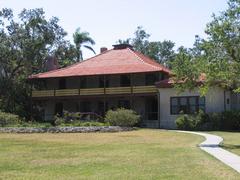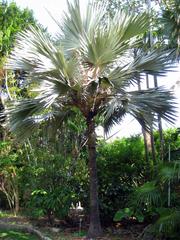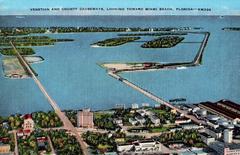
Miami Black Police Precinct And Courthouse
Miami Black Police Precinct and Courthouse Museum: Visiting Hours, Tickets, and Historical Significance
Date: 03/07/2025
Introduction
The Miami Black Police Precinct and Courthouse Museum stands as a profound monument to the city’s—and America’s—complex civil rights history. Located in Miami’s historic Overtown neighborhood, this unique site is the only building in the United States purpose-built to serve as both a police station and courthouse exclusively for African Americans during the segregation era. Established in 1950 under Jim Crow laws, the precinct both reflected the systemic barriers faced by Miami’s Black community and highlighted the resilience and trailblazing spirit of its first Black law enforcement officers. Today, the museum preserves and shares these stories, offering visitors an immersive educational and cultural experience that connects Miami’s past with present conversations about justice, equity, and community empowerment. (historicalblackprecinct.org, WLRN, What To Do Miami)
Table of Contents
- Historical Background
- Visitor Information
- Travel Tips and Nearby Attractions
- Educational Programs and Community Engagement
- Frequently Asked Questions (FAQ)
- Conclusion and Visitor Recommendations
- References
Historical Background
Origins and the Context of Segregation
In early 20th-century Miami, Jim Crow laws enforced rigid racial segregation, affecting every aspect of life for Black residents. Overtown and Liberty City became central neighborhoods where Miami’s Black community thrived despite facing systemic discrimination—including exclusion from public service roles and limited legal protections. Law enforcement practices were often inequitable, with Black citizens subjected to discriminatory policing and denied fair access to justice. (historicalblackprecinct.org)
The Appointment of Miami’s First Black Police Officers
In 1944, Miami hired its first five Black police officers: Ralph White, John Milledge, Clyde Lee, Ed Kimble, and Moody Hall. These men patrolled Black neighborhoods on foot or bicycle, working without radios or firearms and barred from arresting white citizens. Their presence provided much-needed representation and a sense of agency within the Black community, despite the severe restrictions placed upon them. (americanheritage.com)
Construction and Purpose of the Precinct
By 1950, as the number of Black officers grew to 41, the city built a dedicated precinct and courthouse at 480 NW 11th Street, designed by architect Walter G. DeGarmo. It was the only facility in the nation constructed to serve Black officers, judges, and defendants exclusively during segregation, symbolizing both progress and the limitations imposed by institutional racism. The precinct was a community hub—a place where Black Miamians could seek justice, resolve disputes, and find a measure of protection within a segregated system. The building remained in operation until 1963, when integration led to its closure and the reassignment of Black officers to the main police station. (historicalblackprecinct.org)
Preservation and Museum Transformation
After years of neglect, the building was saved by community activists and former officers, who transformed it into the Black Police Precinct and Courthouse Museum. The museum’s mission is to preserve, interpret, and share the stories of Black law enforcement in Miami, particularly during the pre-Civil Rights era. Today, it is recognized as a vital cultural landmark and an essential stop for anyone interested in Miami history and civil rights. (historicalblackprecinct.org)
Visitor Information
Visiting Hours, Tickets, and Accessibility
- Hours: Tuesday through Saturday, 10:00 AM to 5:00 PM. Closed Sundays and Mondays.
- Admission: $10 for adults, $7 for seniors and students with ID, free for children under 12.
- Location: 480 NW 11th St, Miami, FL 33136 (Overtown neighborhood)
- Accessibility: The museum is fully wheelchair accessible, with ramps and elevators. Staff can assist visitors with special needs upon request.
- Parking & Transit: Limited street parking is available; visitors are encouraged to use public transportation. The Historic Overtown/Lyric Theatre Metrorail Station is within walking distance. (What To Do Miami)
Guided Tours and Exhibitions
- Guided Tours: Offered daily at 11:00 AM and 2:00 PM, led by retired City of Miami police officers. These tours provide first-person insights into the precinct’s history and the lived experiences of Black officers.
- Self-Guided Visits: Informational displays and multimedia exhibits allow visitors to explore at their own pace.
- Featured Exhibition: “Anything but a Slum: Miami-Overtown Before I-95/395” runs through November 1, 2025, exploring Overtown’s vibrant cultural history and the impacts of urban renewal, especially the construction of I-95. (historicalblackprecinct.org)
- Amenities: Gift shop, restrooms, and event spaces available.
Travel Tips and Nearby Attractions
- Plan 1.5 to 2 hours for a full visit, especially if taking a guided tour.
- Nearby Attractions: Explore the Historic Lyric Theater, Black Archives History & Research Foundation of South Florida, local restaurants, and the new Underdeck park.
- Photography: Non-flash photography is generally allowed; check with museum staff for any restrictions.
- Group Visits: Advance reservations are recommended for groups of 10 or more.
Educational Programs and Community Engagement
The museum is committed to community engagement and education. It offers school tours, workshops, and special programs tailored to various age groups, as well as dialogue sessions on civil rights, justice, and the ongoing legacy of Black law enforcement. Collaborations with local historians and organizations help deepen the museum’s impact and foster conversations about Miami’s past, present, and future. (What To Do Miami)
Frequently Asked Questions (FAQ)
Q: What are the museum’s visiting hours?
A: Tuesday through Saturday, 10:00 AM to 5:00 PM; closed Sundays and Mondays.
Q: How much do tickets cost?
A: Admission is $10 for adults, $7 for seniors and students with ID, and free for children under 12.
Q: Are guided tours included with admission?
A: Yes, guided tours are included and typically led by retired officers.
Q: Is the museum wheelchair accessible?
A: Yes, the facility is fully accessible.
Q: Is photography allowed?
A: Non-flash photography is permitted in most areas; please check for restrictions on specific exhibits.
Q: Can I buy tickets online?
A: Yes, tickets can be purchased through the official museum website.
Q: Are group and school visits accommodated?
A: Yes, advance booking is recommended for groups and educational programs.
Conclusion and Visitor Recommendations
The Miami Black Police Precinct and Courthouse Museum is more than a preserved historical site—it is a living narrative of courage, resilience, and the ongoing pursuit of justice within Miami’s African American community. As the only purpose-built Black police precinct and courthouse in the nation, it powerfully symbolizes both the progress achieved and the challenges endured under segregation.
Visiting the museum offers an enlightening experience through original holding cells and courtrooms, with guided tours that bring history to life. Exhibitions such as “Anything but a Slum” enrich your understanding of Overtown’s cultural vibrancy and the profound impacts of urban renewal. The museum’s commitment to education and community ensures that these stories remain relevant and accessible for generations to come.
Whether you visit to learn, reflect, or celebrate, the Miami Black Police Precinct and Courthouse Museum offers an essential and inspiring perspective within Miami’s tapestry of historical sites. Plan your visit today to honor this vital chapter of American history and connect with Miami’s enduring spirit. (historicalblackprecinct.org, WLRN, What To Do Miami)
References
- The Black Police Precinct and Courthouse Museum in Miami: History, Visitor Information, and Cultural Significance
- The Miami Black Police Precinct and Courthouse: History, Visiting Hours, Tickets, and Cultural Significance of a Miami Historical Site
- Visiting the Miami Black Police Precinct and Courthouse Museum: Hours, Tickets, Exhibits, and More
- Visitor Information and Tips
Image Suggestions:
- Exterior and interior photos of the precinct and courthouse
- Archival images of the first Black police officers
- Virtual tour video link (if available)
- Map of Overtown highlighting the museum and nearby attractions
Internal Links Suggestions:
- Guide to Miami’s civil rights landmarks
- History of Overtown
- Related articles on Miami African American heritage

